Well, my time here in Nova Scotia is almost done. I’m not surprised that five months pretty much flew by! I’ve had such an amazing time and I’ve gathered a slew of fantastic footage that I can’t wait to review. I feel my shooting skills have grown substantially while I’ve been here. I also feel that I have grown personally, and that’s what I wanted to get down in a blog post today, because being here in Nova Scotia has taught me and reinforced some great lessons that I want to bring back to Ottawa!
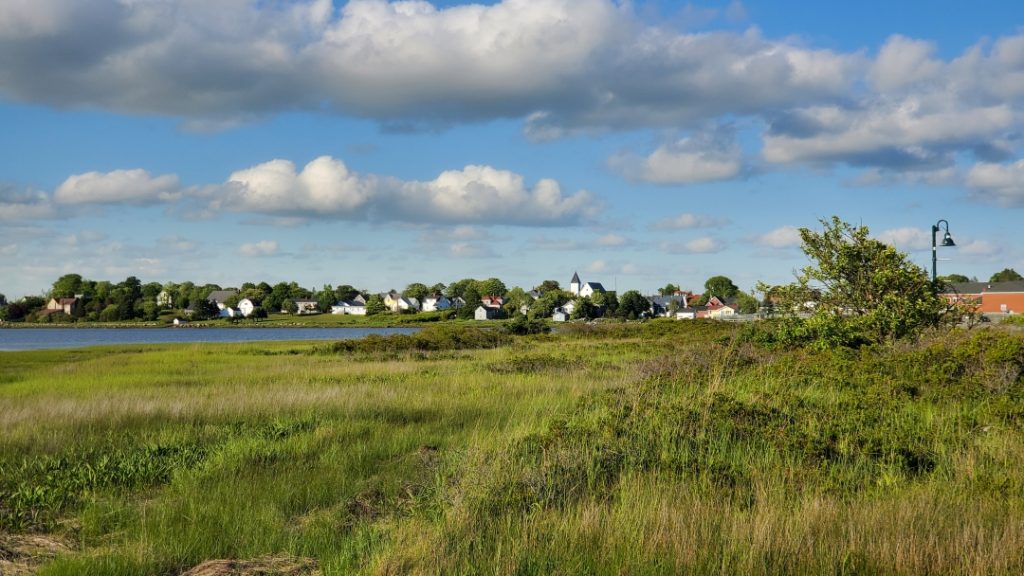
Lesson 1: say hi to strangers
Here in Lockeport, there’s an unwritten community rule that saying hello, waving at, and generally acknowledging others when passing them on the street is a given. This rule applies whether you’re in a car, walking on the sidewalk, entering a store, wherever! Even if you’re walking while talking on the phone, you still say hello, and sometimes you even pause your phone call to have a short exchange with whoever you’ve happened to run into.
When I first arrived here, this rule was really scary for me. In big city Ontario, one does not wave to, or even make eye-contact with strangers. And God forbid you start a conversation! I half joke…but in general, folks in big city Ontario prefer to go about their day avoiding stranger interactions, particularly those involving randos on the street. So when I started to practice Lockeport’s “say hi to everyone” rule, it was incredibly challenging for me. I would see someone walking towards me and begin to panic. When do I raise my hand to wave? Do I make eye contact as we approach each other? Do I say hi or just nod? Will they stop to have a conversation? Aaaa!!! I had no idea what I was doing, so each encounter felt pretty daunting!
Despite this rocky, anxiety-inducing beginning, I’ve really come to embrace this beautiful community rule. Because of this rule, I met Julie Locke-Balish, one of my documentary protagonists, on the second or third day after my arrival. I would have walked right by her but she said hi (because I was a stranger) and ended up inviting me to a band practice that was taking place before our first scheduled shoot date. This rule also led me to meet Jim, who later agreed to show me net knitting for my documentary, and I’ve also had some pretty interesting conversations with other folks, learning about how they came to Lockeport (if they’re come-from-aways), what they love about the community, or even philosophies about life! Because of this rule, I’ve come to feel very connected to the community here. I might not know everyone I wave to, but I still feel part of their lives because we have acknowledged each other’s existence.
When I get back to Ottawa, I plan to say hi to every stranger I run across in my own small community in Ottawa South. I don’t necessarily plan to wave at every car I pass throughout the city (what a workout!), or stop to chat with every pedestrian, but within my own little neighbourhood, I’m going to start saying hi. Who knows what interesting folks I might meet? I’m looking forward to finding out!
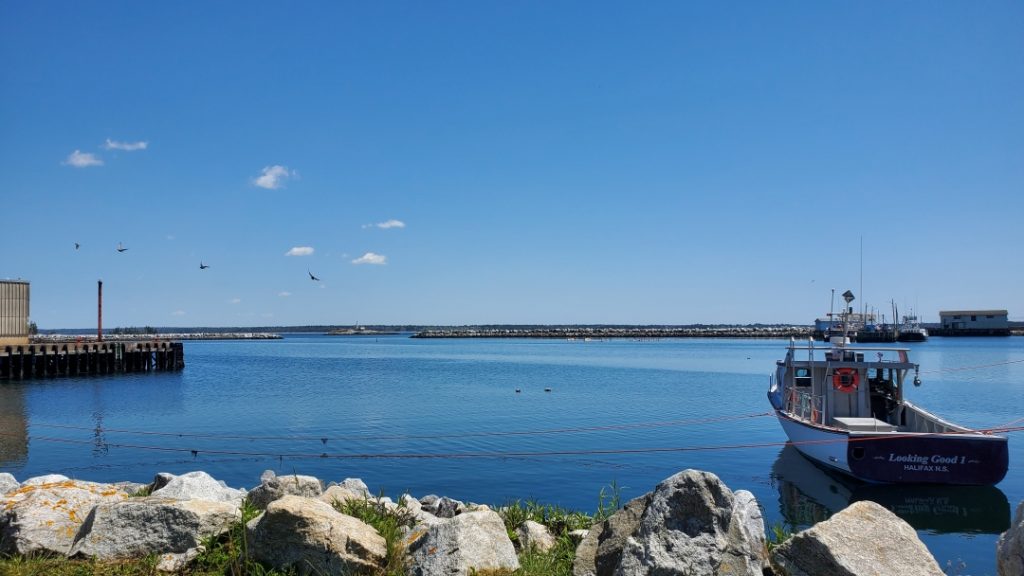
Lesson 2: Notice & Savour the World Around You
This lesson connects a bit to the ‘say hi to strangers’ lesson in that both are about paying attention to your surroundings. I know I have notoriously failed to do this in Ottawa. Here in Lockeport, where my surroundings have been new and exciting, it’s been easier to pay attention. When I go for walks, I don’t feel the need to listen to music or look at my phone because there’s so much to take in all around me – the waves rhythmically crashing onto the beach, the pipping plovers arguing over territory lines, the wind tussling the treetops, the lone seagull crying as the sun sets over the glassy ocean…even the sounds of my shoes crunching across the gravel pathway on the trestle trail has been engaging.
What I’ve loved most about taking the time to truly see my surroundings has been witnessing the stunning transformation of the environment. When I arrived, everything was brown. Over the spring and summer, the whole town exploded with colour, birdsong, and the rich scent of hundreds of different flowers in bloom! I’ve seen seals in the harbour, and weasels searching for food. I’ve watched yellow finches build their nests, and seen flowers transition to bean-pods. The sunsets have painted the skies with taffy-coloured streaks and morning fog has left greenery shining with a thousand crystal droplets.
I know this type of beauty exists in Ottawa, it’s just that I haven’t taken the time to look like I have here. So when I go back, I’m going to see and savour my surroundings, because doing that here has really helped me feel connected to this wonderful place.

Lesson 3: Listen Closely, Ask Questions, & Be True
This is a combination lesson that every documentary filmmaker knows and probably puts into place during filming, but my suggestion here is to take it out of the documentary context and bring it into your daily interactions. I’ve listened closely to many of the folks I’ve met here, and I’ve had two major realizations as a result: (1) People are absolutely fascinating – they have such rich and diverse experiences and listening to their stories gives you a glimpse into the exciting adventures their lives have been. By listening closely, you can also glean life lessons to help you avoid making similar mistakes in the future.
More importantly though, listening closely and asking questions helps us all feel seen, which is the second realization I’ve had while here: (2) Very few of us truly ever feel seen as whole beings. Instead, we share versions of ourselves, curated based on our “audiences” – one self for family, another bunch of selves for friends, a completely different self with colleagues, etc. Our partner(s) may know the most about us, but after a while, we become a curated self for them as well, weeding out pieces of our history and habits that don’t jive in the relationship. We forget how multi-faceted we really are. By listening closely to everyone I’ve met, I have felt seen and felt as if I’ve granted that experience to others. Not everyone has shared every aspect of their lives with me, but I’ve seen different facets of people that their closest friends and family may not know exist. Perhaps I’m incorrectly assuming I’m getting such an intimate glimpse of people this way, but right or not, I know when I walk away from an interaction where I’ve focused on listening closely, both myself and my conversation partner seem to feel pretty good.
Which leads me to the last part of this lesson: Be true. Folks here in Lockeport do not mince words. They are some of the most authentic human beings I have ever met in my life. There are no mind games, there’s no dancing around the bush to make a point. They don’t stay silent when their opinion is different from others’ and there’s little-to-no passive aggressive communication. Folks here just say things like they see them and assume others are going to do the same. This doesn’t mean people express all their grievances or gripes on the spot, nor does it mean they don’t vent to each other or gossip at times. It just means that what they say out loud is their truth, and they respect others who engage with the same.
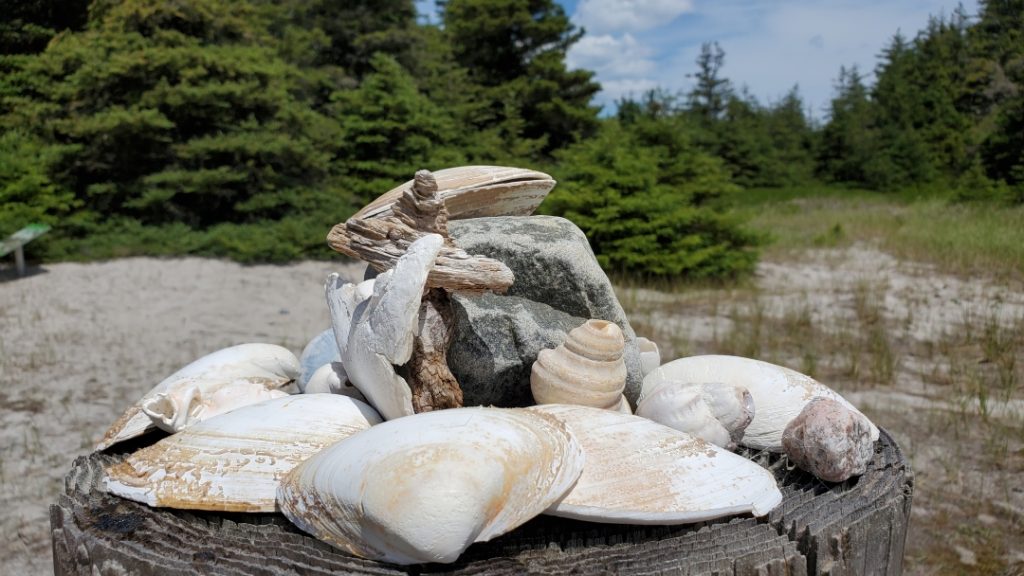
To be honest, this lesson of “being true” has been tough for me to absorb. I am the type of person who avoids conflict like the plague. I refrain from speaking my mind at times (or often) because I fear harming others’ feelings, or being criticized or chastised for my opinions. I assume that people obfuscate their true meanings when they ask a question or state an opinion due to rules of polite social interaction, fear at revealing too much, or sometimes even malice, so I find myself constantly analyzing people’s words to try and find the “true meaning” behind them. It’s been a process for me to try and release these behaviours (which say a lot about me, but also the social environments I’ve been in over the years!). What’s great though is that several circumstances while here in Lockeport have helped me practice.
For example, when I first arrived, my friend was so eager to support the documentary that within days of my arrival, she booked an impromptu interview for me. I hadn’t planned to conduct interviews for this documentary (that has since changed) and I didn’t know how to tell her this because I was afraid she would think I didn’t appreciate her help. However, she told me several times it wouldn’t hurt her feelings if I wanted to do things my own way, so I got up the courage to share my vision for the documentary. True to her word, she wasn’t upset that my vision and approach were different, and in fact, because I was clear about it, we were able to work together to expand and enhance the film over the past five months.
All this to say that I hope to take this lesson about listening closely, asking questions, and being true back to Ottawa. It feels so much better to listen and speak from my heart, and while I’m still finding the courage to do so, I suspect it will lead to a much happier existence, even if, at times, my authenticity may lead to conflict or challenges.
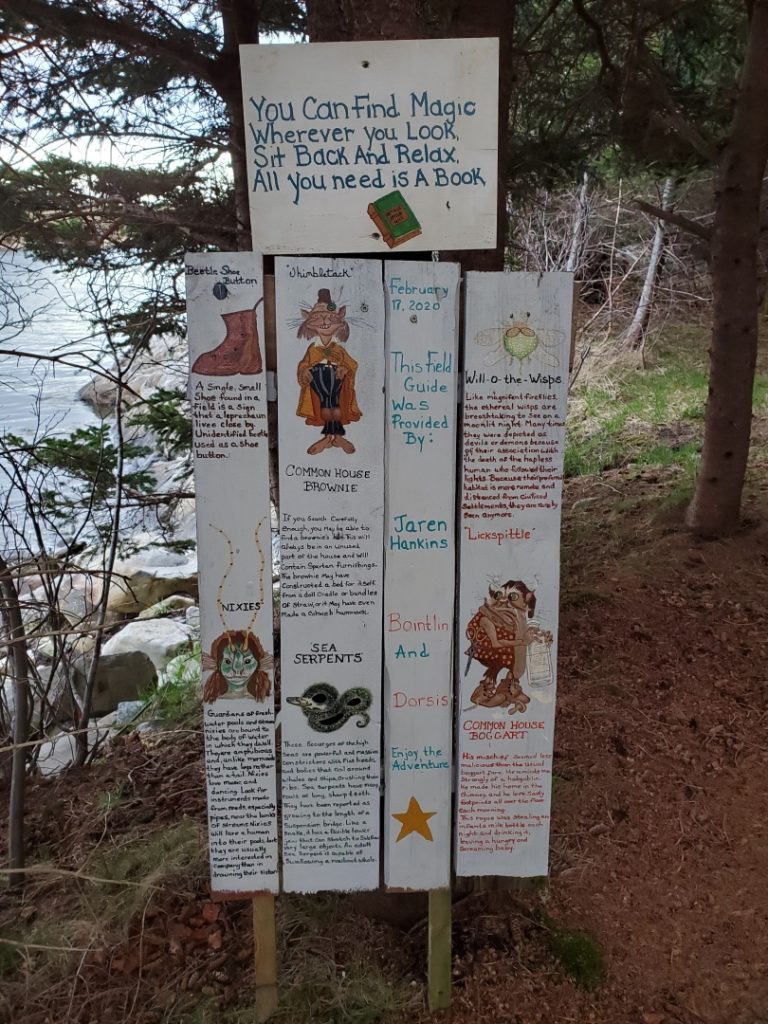
Lesson 4: Remember Others & Contribute to Build Community
This lesson ties into the first three, but I’ve also separated it out because I think it differs a little too. I’m not exactly sure how to articulate it, but basically, what I think I mean is, if you practice lessons 1-3, folks in your community will be there for you and you can be there for them. Let me explain.
Here in Lockeport, there are approximately 550 residents. Some are only part-time residents, and others live here year-round. With 550 people, it’s impossible to know everyone, but what folks do is treat each person as contributing members of the community, even if they are new. For example, when the librarian finds out about someone’s special skill, she goes out of her way to encourage that member to host a library workshop on said skill. When a new person moves to town, many of the community members introduce themselves so the newcomer immediately knows people. My roommate works with other community gardeners to plant flowers all over town so others can enjoy them – these gardeners aren’t paid for this work, but the municipality has a small budget set aside so the gardeners don’t have to pay out of pocket for supplies. When a family’s house burnt down due to a chimney fire, the community organized a big fundraiser to help the family get back on their feet.
The point is, people here notice each other, notice when folks need help or have a special talent, and they actively encourage each other to get involved in building this community vibe. Not everyone does this, but enough folks do that many people feel very proud of, and tied to, Lockeport in ways I haven’t seen in other places. I hope to bring this lesson back to Ottawa in my small Ottawa South community, because the collective care I feel being here in Lockeport is something I truly think many are missing in other parts of Canada!
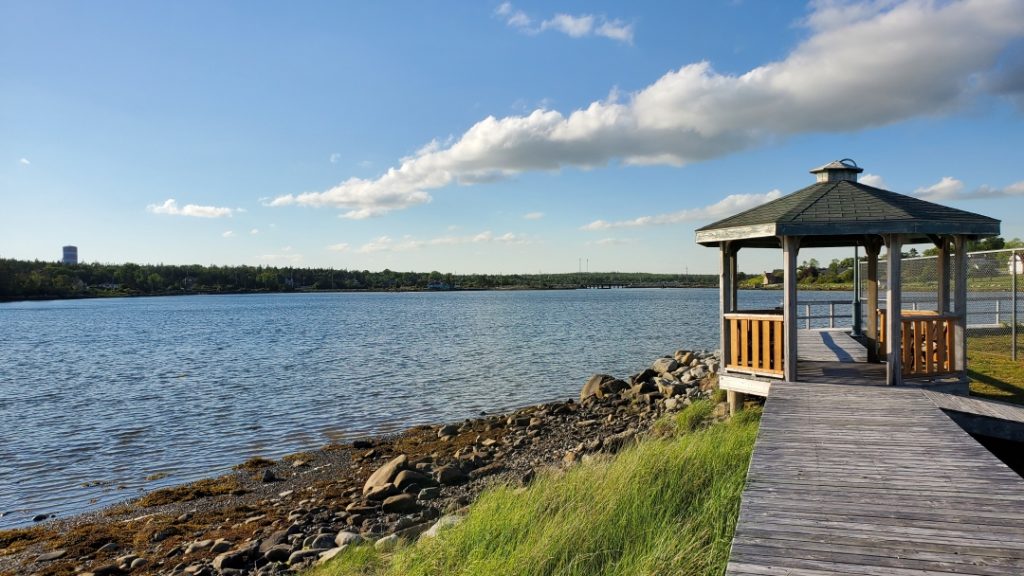
Lesson 5: Find the Positive
The last lesson I’ve had driven home while I’ve been here is finding the positive. Folks that I’ve met here are constantly celebrating the good in life. Is it raining? Delightful – the wells will be full and the gardens will grow. Is it hot and humid with a brilliant sun? Fantastic – we can walk the beach and possibly even swim! Did the power go out in the middle of the day? Wonderful – an opportunity to take a break from work! Did the fire station ring its alarm in the middle of the night, waking you up? Yep! And thankfully, someone is being saved! Okay – I haven’t heard the last one, BUT my point is that no matter what the situation, folks here find the positive in it. This is not to say they are toxic positivity evangelicals, dismissing or invalidating negative experiences by “looking on the bright side”. They just don’t dwell on the negative, preferring to acknowledge it and also see the positives.
This is one of the most important learnings I hope to carry back to Ottawa. I have a habit of dwelling on the negative, pointing out my faults instead of recognizing my growth, failing to see the opportunities that an unexpected challenge provides. Being here I’ve learned to love the rain – because I don’t feel guilty about working. I’ve learned to see sudden cancellations or schedule changes as a gift of “free” time. I’ve recognized that when I’m exhausted and can’t work, it’s an opportunity to release the burden of my task list and savour the world around me. I’m very thankful for witnessing this lesson in action all around me in Lockeport, and while I’m still learning the process, I am eager to keep growing in this way.
So those are the lessons – what do you think? What have you learned about life over the past 5 months? Share in the comments below!

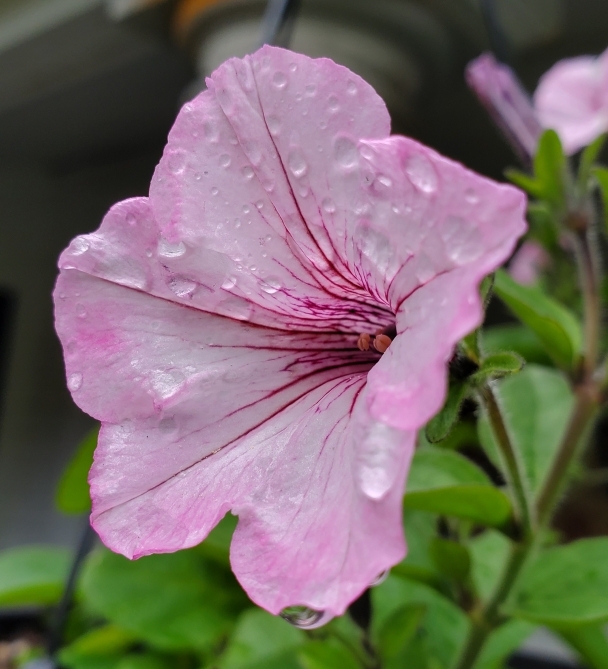
No Comments
Sorry, the comment form is closed at this time.